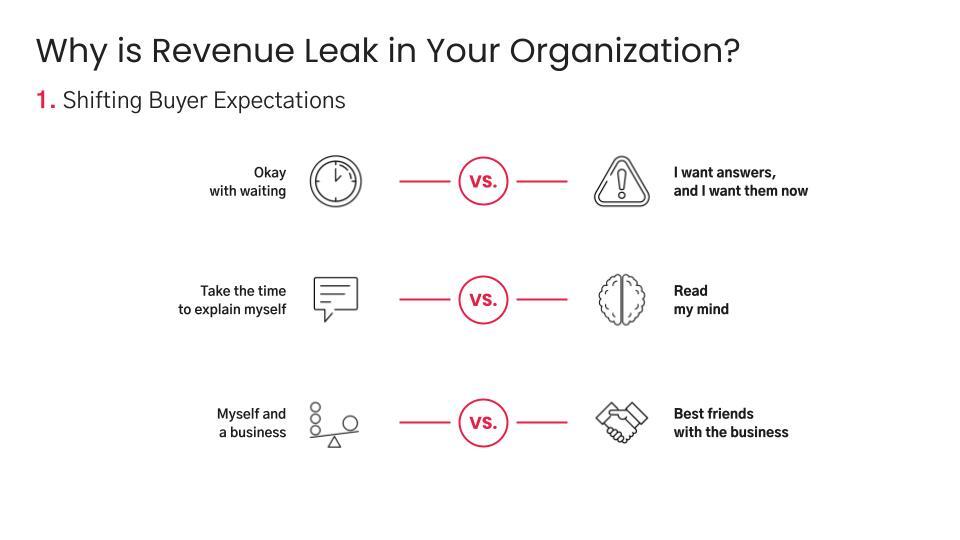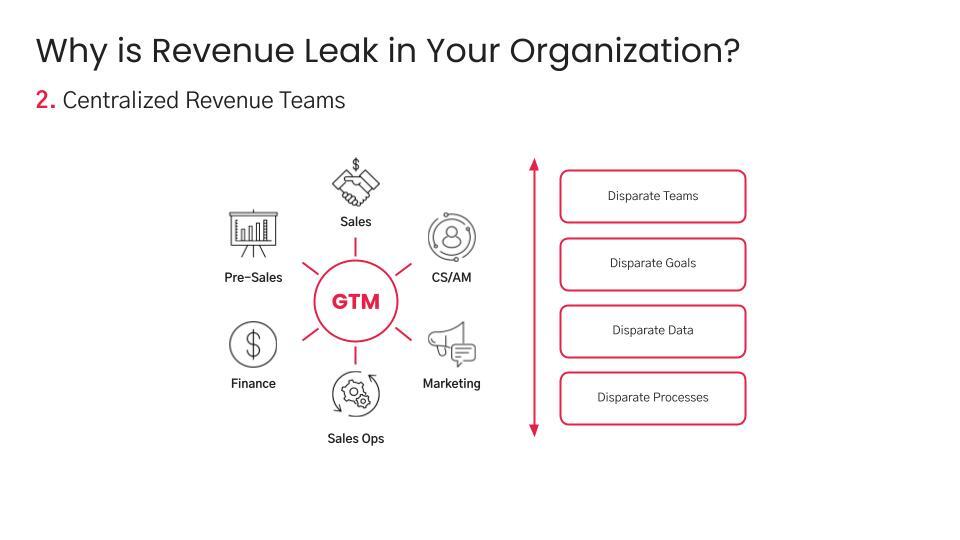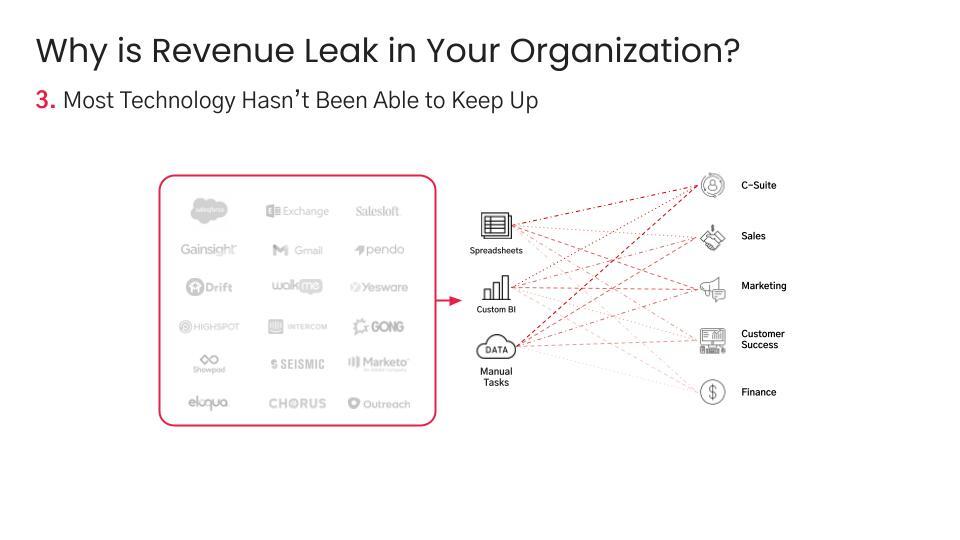Drip. Drip. Drip. The leak may be hard to find, but you know it’s coming from inside the house.
Every quarter, thousands of dollars (if not millions) are slowly leaking out of your business. We aren’t talking about physical plumbing. We are talking about breakdowns across your revenue process resulting in revenue leak.
What is revenue leak? It’s the biggest business problem hiding in plain sight, impacting all companies across all industries. It represents the revenue you’ve already worked hard to earn but have yet to capture. And according to our Clari Labs research, 14.9% of revenue is lost every year due to revenue leak.
It can show up in a handful of sneaky scenarios. Maybe the high-visibility enterprise deal you needed to come in slipped to next quarter. Maybe one of your top sellers gave away another one of their famous generous discounts. Maybe your win rates have decreased slowly over time without a clear culprit. Or maybe that huge customer you thought you could count on churned or downgraded.
Revenue leak is more pervasive than ever before. We need to understand why consumers and businesses have changed over the last few decades and how it’s affecting the way you operate today.
Buyer expectations have shifted from “waiting in line” to “I want it now”

The emergence of new technology and more connectivity has caused buyers to want (and expect) a more personalized buying experience. If companies can deliver on this, it will transform their customer relationships from “strangers” to “close friends.”
Thirty years ago, you couldn’t just hop on your cell phone and get your customer success manager to troubleshoot a problem. Twenty years ago, you couldn’t visit a website and expect a sales rep to reach out to you immediately with details about your business at the ready.
But this transformation requires companies to be more human, more available, and more knowledgeable about customer needs. On its own, this doesn’t cause revenue leak (more on that later), but it does push organizations to collect more comprehensive data and work to bring revenue-critical teams closer together under one source of truth.
Revenue-critical teams: Up to 50% of a company’s employees are “revenue-critical.” Meaning that they, in some way, contribute to a company’s revenue-generating process.
Organizations respond: from disparate to centralized revenue-critical teams

Because of this shift to the here and now, organizations have responded in two ways.
First, they’ve had to leverage massive amounts of customer data to be more methodical in their responses. Their Sales, Marketing, and Services teams have made it a point to understand customers more than customers understand themselves.
Second, organizations have had to break down silos between revenue-critical teams so customers can experience a seamless, connected process. This means enforcing new methods of collaboration and integrated work streams.
Why revenue leak: Businesses have rightly moved to centralize their revenue-critical teams, which has exposed breakdowns in revenue processes, data, and technology. This isn’t a bad thing! This is the visibility necessary to find previously unrecognized revenue leak and unattributed revenue loss.
The problem with most tech: It’s not built to run revenue

Until businesses manage to centralize their revenue-critical teams, they continue to rely on systems that are three decades old: CRM, Excel spreadsheets, and BI. Unfortunately, these tools and systems are manual, complex, siloed, and outdated. Put simply, they weren't built to support the end-to-end revenue process.
Why revenue leak: Disparate data, disconnected handoffs between departments, poor deal health, lack of forecasting visibility, and other challenges exist in many organizations. These all equate to revenue leak and lead to missed opportunities and lost revenue, which is totally avoidable.
Discover how to turn revenue leak into revenue precision
Every company, even the most established, has some form of revenue leak. The good news is that new methods exist to identify and reduce its severity. You can use Clari’s Revenue Platform to spot and monitor revenue leak in your organization. But first, you have to understand what it is, where it’s hiding in your organization, and how you can stop it.
Check out our live interactive discussion “From Revenue Leak to Revenue Precision” to hear from your peers, Clari customers, and revenue experts on how they combat revenue leak and achieve revenue precision.
Want to see the financial impact of revenue leak at your organization right now? Take the Revenue Leak Assessment and see how much revenue you leave on the table.




